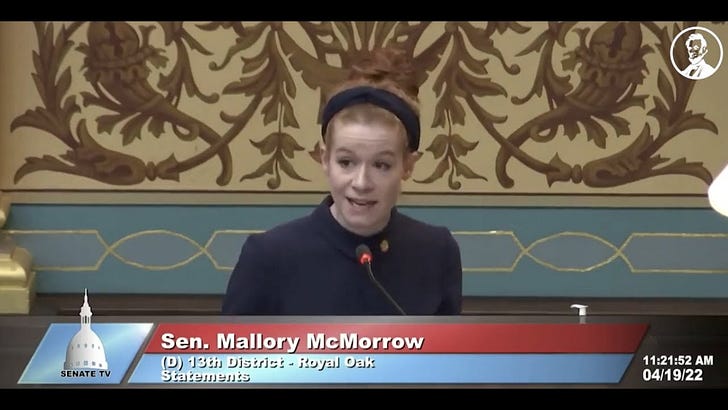It’s hard to gear up to write a newsletter this week with the heaviness of the Robb Elementary School shooting weighing on us all. I am sure that we all feel the same sense of gripping sadness and frustration that we can’t seem to elect people who will make changes to our gun laws. Of course, it isn’t only gun control laws that need changing. I don’t know if this horrific incident will make any political changes, but I am struck by the fact that 90% of Americans approve of universal background checks for gun purchases and 70-80% (depending on the poll) of Americans approve of keeping Roe v. Wade, but somehow we have elected officials who won’t enact the people’s will. How can this be? Let us all do what we can to support common-sense gun control legislation and hold these families in our hearts. Make noise, get involved, and keep your loved ones close.
Health News Updates
North Carolina is finally looking at expanding Medicaid
The majority-Republican legislature of North Carolina is finally proposing expanding Medicaid statewide. By expanding Medicaid coverage, over half a million North Carolinians would become eligible for health insurance. State Senate leader Phil Berger, who has opposed Medicaid expansion for years, explained that he had come to the conclusion that he could now trust the federal government to fulfill its promise of reimbursements. President Biden also offered an additional $1.5 billion of federal funding if any of the hold-out states expanded Medicaid soon. We will see how this moves through the legislature. If successful, Governor Cooper will certainly sign the bill.
North Carolina extends Medicaid post-partum coverage
While North Carolina is one of the twelve states that has not expanded Medicaid (yet), the legislature threw a bone to progressives by expanding post-partum Medicaid coverage from 60 days to one year. This is a significant move since data tells us that up to 24% of pregnancy-related deaths occur between 42-365 days post-birth.
Title IX news
Title IX turns 50!
On June 23, Title IX will have been in effect for 50 years. While most contemporary people think of the law as dealing with sexual harassment, the law was enacted to prevent sex discrimination in any educational program receiving federal funding, including sexual harassment. Initially, the law was meant to target sports programs, but our understanding of the law has expanded over the past 50 years. The New York Times is publishing a series of articles about the act throughout the month leading up to the milestone date.
Liberty University settles Title IX lawsuits
If you are a regular Chaise Lounge reader, then you may remember a piece published last year about twelve women who were suing Liberty University for ignoring their reports of sexual assaults. In fact, some of the women were punished for breaking the school’s behavior code. The school has since settled with the Jane Does, although the terms of the settlement are sealed by court order. Let’s hope these women were given a healthy sum of money, although no amount can reduce the trauma caused by sexual assault and having your community turn on you. With the release of the decades-long, eye-opening report of the cover-up of sexual abuse within the Southern Baptist Convention (see below), it seems that the time is right to expose these hypocritical leaders.
Southern Baptist Convention Covered up decades of sexual abuse
The Southern Baptist Convention (SBC) hired third-party firm Guidepost Solutions to look into claims of sexual abuse within the convention for the past two decades. Guidepost published a scathing report outlining how sexual abuse claims were not only ignored but the survivors were chastised and accused of being actors or working for nefarious purposes. They kept a secret list of reported sexual abusers that had over 500 names on it. Guidepost makes many sensible recommendations, but we wonder who will be in charge of seeing to their implementation?
Other countries are liberalizing abortion laws, how did they do it?
Last week, NPR’s Here and Now program interviewed Enid Muthoni Ndiga, the Chief Program Officer for the Center for Reproductive Rights, an international organization supporting women’s health. The topic was “What’s behind the global trend to liberalize abortion laws?” as so many Latin American countries have loosened their draconian laws. Ndiga was very clear that the key to success in each country was their ability to take the conversation away from the politicians and return it to the communities where it can be discussed as the health issue that it is. She said this reduces stigma and enables people to recognize abortion as an essential part of health service making it a fundamental right.
Did he really say that?
Senator Bill Cassidy (R-LA), who incidentally is a doctor, when discussing the high maternal mortality rate in his state said,
“About a third of our population is African American; African Americans have a higher incidence of maternal mortality. So, if you correct our population for race, we’re not as much of an outlier as it’d otherwise appear. Now, I say that not to minimize the issue but to focus the issue as to where it would be. For whatever reason, people of color have a higher incidence of maternal mortality.”
It’s hard to know where to begin with these comments, but let’s start with the fact that he would think it is appropriate to dismiss the deaths of any particular racial or ethnic group to make the numbers look better. Race is a social construct, so blaming race or “whatever reason” for the issue is not helpful. He also cited the fact that Louisiana tracks maternal mortality for a year after the baby’s birth, which also makes their numbers look bad. Actually, it is good that they are looking a year out and recently the CDC started using that same measuring stick. There are many post-partum issues that continue beyond the 42-day threshold that was previously used. As noted above, 24% of maternal deaths happen after day 42.
To give credit where it is due, Cassidy was a sponsor of a bill that Representative John Lewis(D-GA) had originally proposed in the 116th Congress before his death called the John Lewis National Institute on Minority Health and Health Disparities (NIMHD) Research Endowment Revitalization Act. The law will invest in universities conducting research into minority health disparities. It passed in March of this year and was signed into law by President Biden. So even if he wants to fudge numbers to make his state look better, the Senator is interested in finding out why some women have higher maternal mortality rates.
Woman of the Week
Now that’s multi-tasking! This Canadian mother fended off an eagle attacking her pet goose while breastfeeding.
Interested in learning about other newsletters on any topic? Check out The Sample. Where they curate newsletters on any topic you can think of. Just let them know what your interests are, and they will send you newsletters to try out.
















Share this post